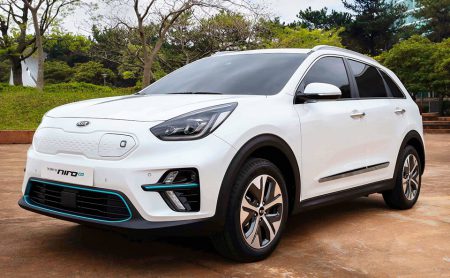The practical reasons against electric are disappearing – and now councils are stepping in to help
This feels like one of the “You’re the expert” questions that appear in Guardian Money every week. I have an old-ish petrol-fuelled car, sitting parked outside my terraced home, which I use only at weekends. And I have a brother-in-law who is evangelical about his Nissan Leaf. I’d like to be more like him. Yet the closest charging point for me is a 10-minute walk away, and often busy. Is it just too early to ditch my old car and go electric?
The question marks over electric vehicles used to be about battery technology and the cost. But “range anxiety” has largely been conquered. The first Nissan Leaf batteries took you about 80-85 miles without needing a charge; the latest ones do 150 miles. The new Kia e-Niro family car manages 300 miles, while at the Frankfurt Motor Show, Mercedes was showing off its Vision EQS model with a “comfortable” range of 435 miles. Given that the average car journey in the UK is just 10 miles, according to the RAC, fears over the usability of electric cars are fading fast.

Sadly, prices for new electric cars remain higher significantly higher than for petrol or diesel, with the eGolf at about £30,000 compared with petrol ones starting at about £20,000. But as we highlight this week, a used market is now developing in electric vehicles, with entry-level prices as low as £5,000 – with no annual tax, and low servicing charges to boot. What’s more, driving costs are a fraction of the cost of petrol, without even mentioning the enormous benefit to the environment, especially in cities.
So why aren’t we all switching over? The knee-jerk response is now about charging times, for city dwellers like me without the luxury of a drive or garage. Who in their right mind is going to spend half an hour queuing for a charge point, then sit there for an hour or so while it fills up? Or faff around finding the only on-street overnight charge point available, then walk home in the rain for half an hour? It’s not going to happen.
The correct response is that the climate crisis means we will have to live without the hyper-convenience we became accustomed to. If the average journey is just 10 miles, why not take the bus or use an e-bike? And if you must insist on a private car, is a 10- or 15-minute walk to a charging point really such a sacrifice to save the environment?
Read more: The Guardian
